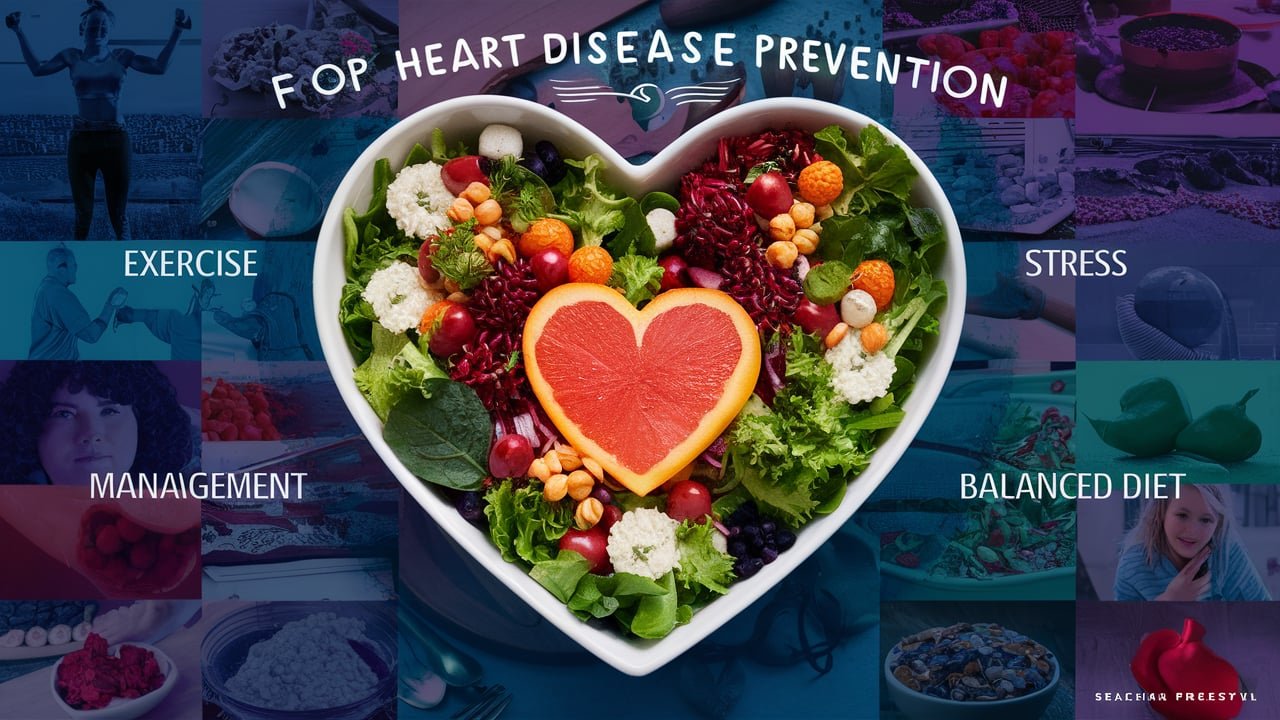Your cart is currently empty!

Heart Disease Prevention: Essential Strategies for a Healthy Life
Are you concerned about your heart health? You’re not alone. Heart disease remains one of the leading causes of death in the United States. However, there’s good news: many risk factors for heart disease are within your control. By adopting a proactive approach to your cardiovascular health, you can significantly reduce your risk and enjoy a longer, healthier life.
Let’s explore some essential strategies for preventing heart disease and maintaining optimal cardiac function:
1. Embrace a Heart-Healthy Diet
Your diet plays a crucial role in heart health. Focus on incorporating more fruits, vegetables, whole grains, and lean proteins into your meals. Omega-3 fatty acids, found in fish like salmon and mackerel, are particularly beneficial for your heart. Limit your intake of saturated fats, trans fats, and excessive sodium, which can contribute to high blood pressure and cholesterol levels.
2. Stay Active and Exercise Regularly
Regular physical activity is a cornerstone of heart disease prevention. Aim for at least 150 minutes of moderate-intensity aerobic exercise or 75 minutes of vigorous-intensity aerobic exercise per week. Activities like brisk walking, swimming, or cycling can help strengthen your heart, improve circulation, and manage weight – all crucial factors in maintaining cardiovascular health.
3. Manage Stress Effectively
Chronic stress can take a toll on your heart. Incorporate stress-reduction techniques into your daily routine, such as meditation, deep breathing exercises, or yoga. These practices can help lower blood pressure and reduce the risk of heart-related issues.
4. Quit Smoking and Limit Alcohol Consumption
If you smoke, quitting is one of the best things you can do for your heart. Smoking damages blood vessels and increases the risk of heart disease. Similarly, excessive alcohol consumption can raise blood pressure and contribute to heart problems. If you drink, do so in moderation.
5. Regular Health Check-ups and Screenings
Stay on top of your heart health by scheduling regular check-ups with your healthcare provider. Routine screenings for blood pressure, cholesterol levels, and diabetes can help identify potential issues early on, allowing for timely intervention and management.
6. Maintain a Healthy Weight
Obesity is a significant risk factor for heart disease. Maintaining a healthy weight through a balanced diet and regular exercise can reduce strain on your heart and improve overall cardiovascular function.
7. Get Adequate Sleep
Quality sleep is essential for heart health. Aim for 7-9 hours of sleep per night. Poor sleep habits can contribute to high blood pressure, obesity, and diabetes – all risk factors for heart disease.
By incorporating these strategies into your daily life, you can take significant steps towards preventing heart disease and promoting overall well-being. Remember, it’s never too late to start prioritizing your heart health. Small, consistent changes can lead to substantial improvements in your cardiovascular fitness and quality of life.
FAQs:
1. What are the early warning signs of heart disease?
Early warning signs may include chest pain or discomfort, shortness of breath, irregular heartbeat, and fatigue. If you experience these symptoms, consult a cardiologist immediately.
2. How does high cholesterol affect heart health?
High cholesterol can lead to the buildup of plaque in arteries, increasing the risk of heart attack and stroke. Managing cholesterol levels through diet, exercise, and medication when necessary is crucial for heart disease prevention.
3. Can stress reduction techniques really impact heart health?
Yes, stress management techniques like meditation and deep breathing can lower blood pressure and reduce the risk of heart disease by decreasing stress hormones in the body.
4. What role does genetics play in heart disease risk?
While genetic factors can influence heart disease risk, lifestyle choices play a significant role. Even with a family history, adopting heart-healthy habits can greatly reduce your risk.
5. How effective are statins in preventing heart disease?
Statins are highly effective medications for lowering cholesterol and reducing the risk of heart attack and stroke. However, they should be used in conjunction with lifestyle changes for optimal heart health.






Leave a Reply